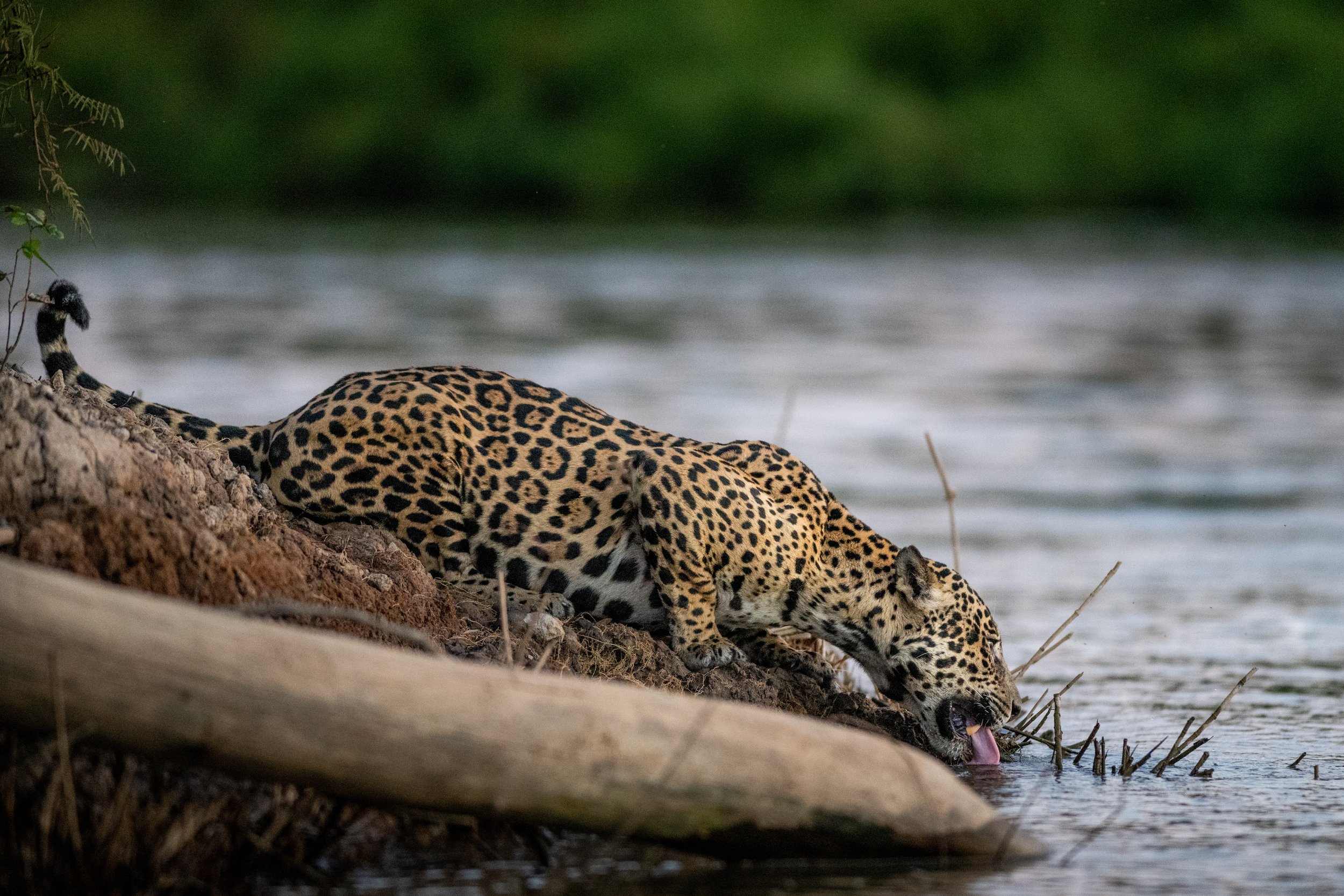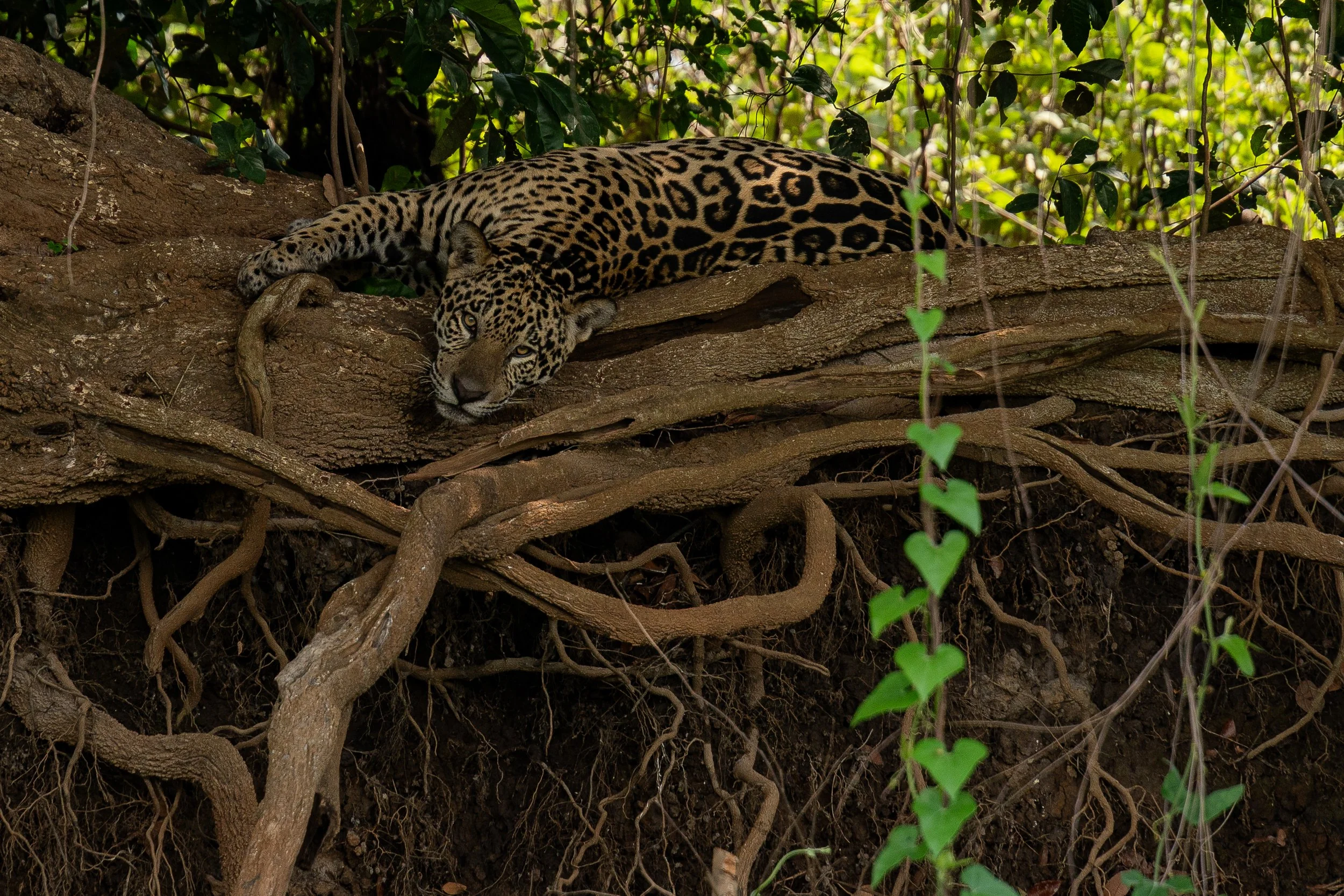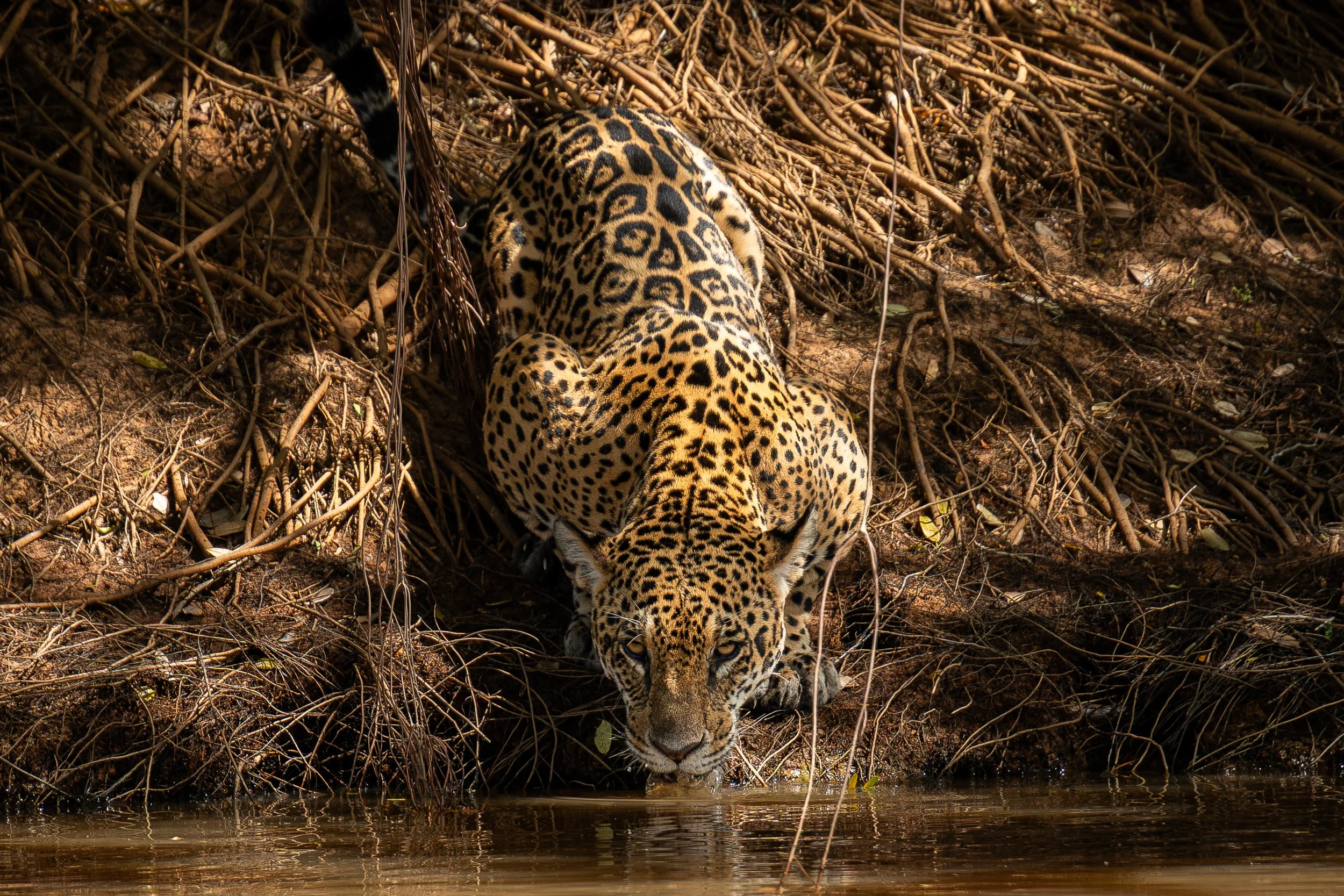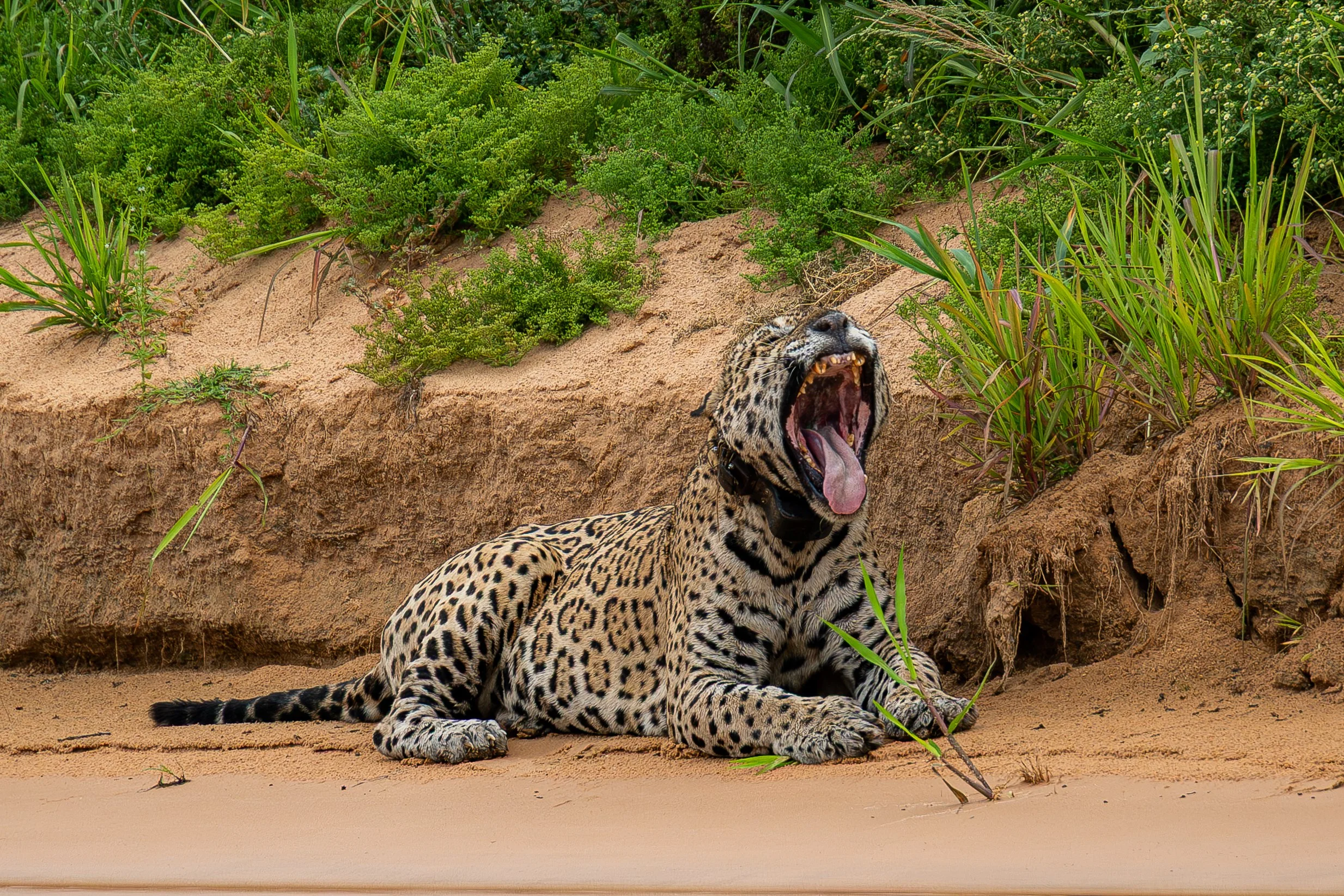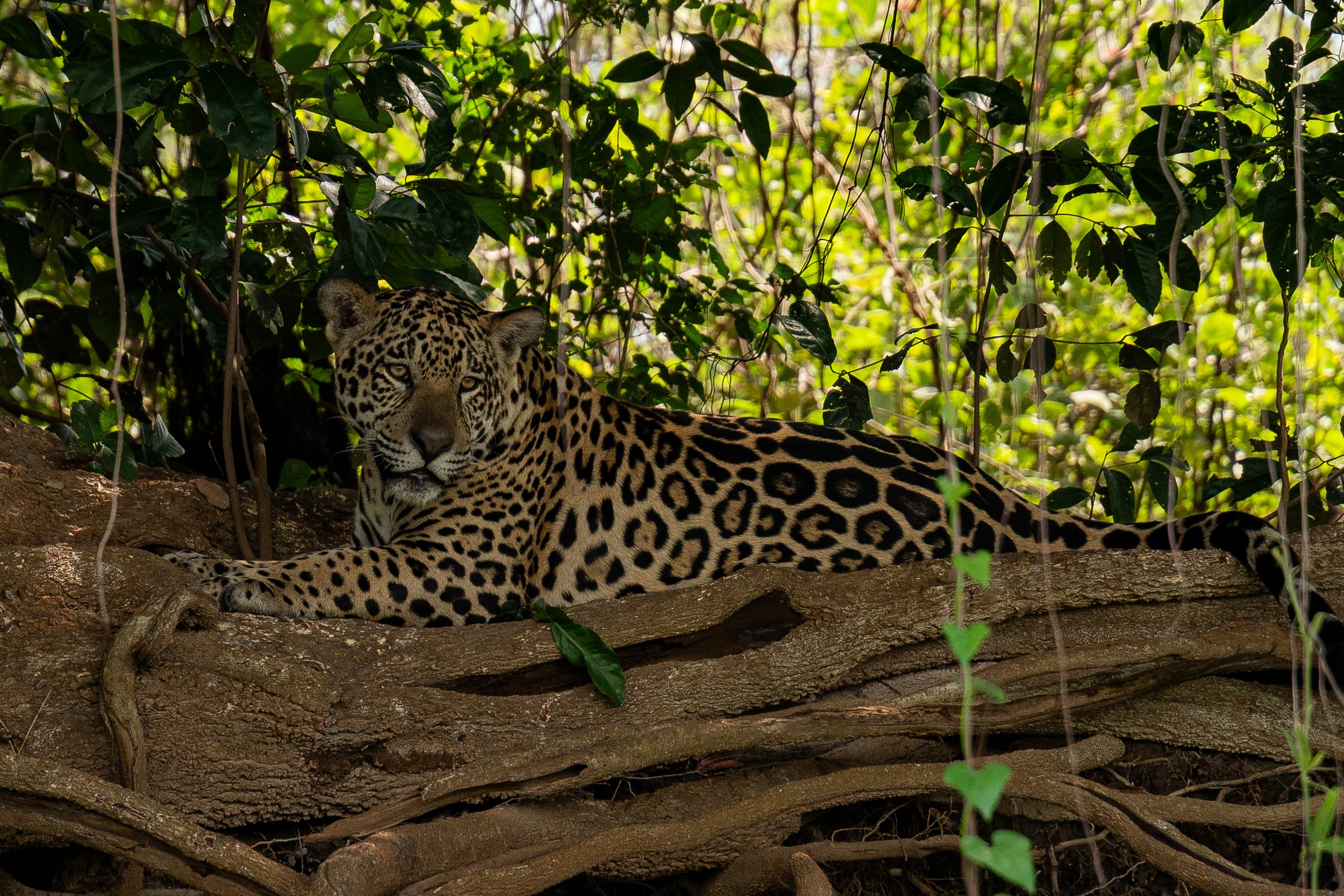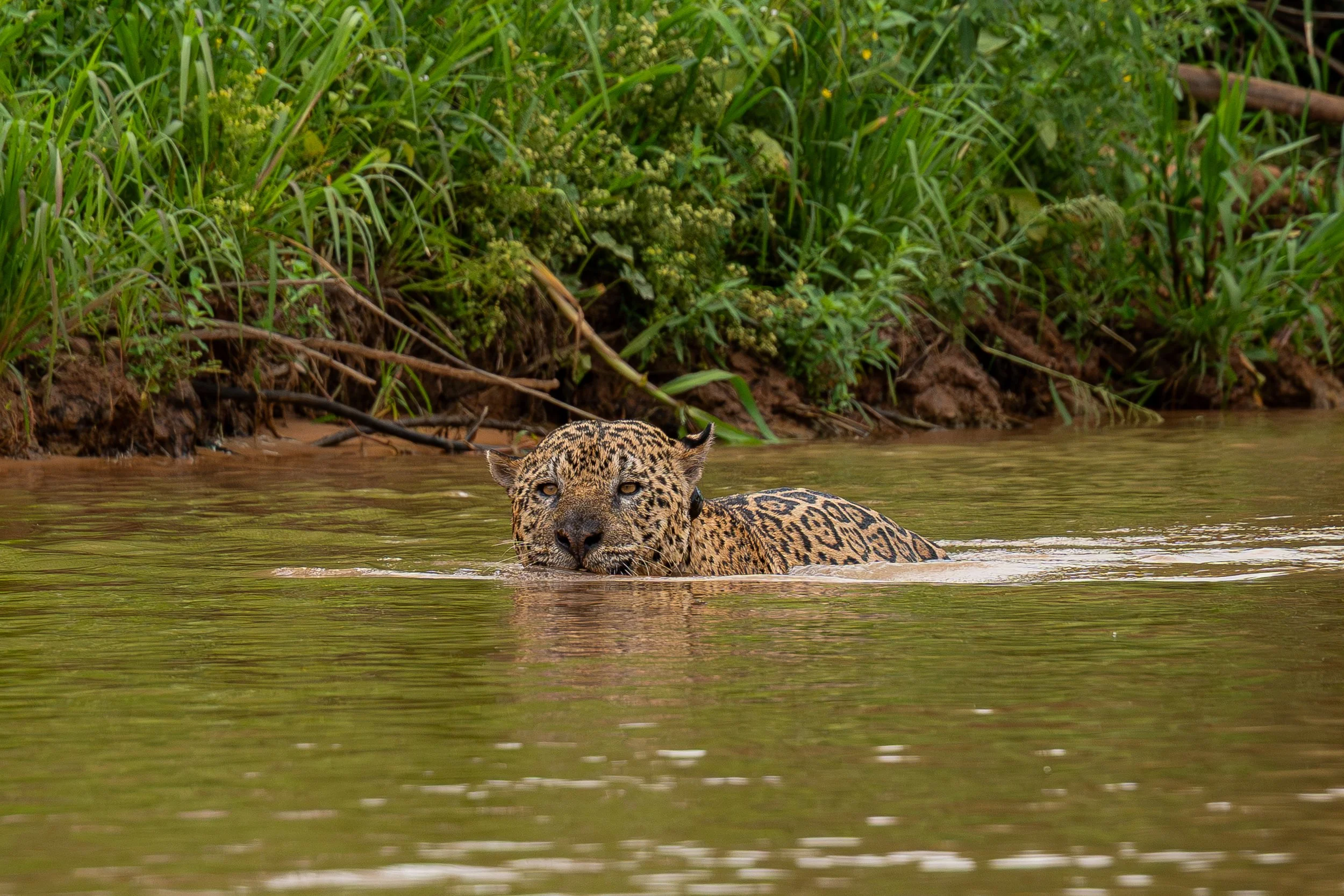JAGUAR IDENTIFICATION PROJECT
THE WETLAND RESEARCH CENTER
PORTO JOFRE-MATO GROSSO, BRASIL
2025 GRANTEE | $15,000 | NOMINATED BY WILDERNESS TRAVEL
ADOPTED BY JOURNEYS INTERNATIONAL
We will conduct the first detailed field study of the northern Pantanal's jaguars inside their core habitat, and simultaneously coordinate detailed educational outreach programs and workshops for both local residents and global ecotourists about best practices for ethical jaguar viewing and fire mitigation. Through these measures, we will encourage better regulated tourism, more coordinated and efficient fire response efforts, and greater linkages between all the Pantanal’s stakeholders-inside and outside conservation and ecotourism- in the shared spirit of conserving the crown jewel of its fauna.
The Issue:
The Pantanal, the largest tropical wetland on Earth, provides critical habitat for imperiled species and offers irreplaceable ecological services of global significance. Recent fires, predominantly triggered by human unregulated practices, along with climate change and ineffective public policies, have severely altered and degraded these wetlands. Such major landscape alterations and habitat loss pose a serious threat to predator-prey distributions and abundances in the region, presenting enormous challenges for its ecological systems to be able to recover and regain biodiversity balance in time, before the next calamity strikes. In the Pantanal, the indicator species of an ecological balance is the jaguar. The health of the wetland’s astounding biodiversity hinges on well being and population stability of this apex predator.
Grant Award Use:
We seek to enhance our jaguar monitoring and environmental education programs by expanding our surveillance to the Encontro das Águas State Park. This facet of our project will herald the first ever longterm study of jaguars inside the core habitat of the northern Pantanal's main tourism zone. By situating camera traps in reaches of the park that are inaccessible to boats navigating the adjacent rivers, we will supplement the data from our existing citizen science program and comprehensively document jaguar density, abundance, male and female home ranges, dietary habits, and interactions between jaguars and other wildlife.
What Would a Successful Project Result In?
We consider our project’s final success as achieving a comprehensive understanding of jaguar population dynamics and how citizen science through ecotourism can successfully facilitate conservation, ultimately informing and enhancing conservation strategy for the Americas top predator.
Voices From The Community:
“ATCF’s support has been transformative, it allowed us to advance long term jaguar monitoring while engaging hundreds of community members through education and outreach. This funding directly supports conservation on the ground and builds resilience for both wildlife and local people in one of the most biodiverse wetlands on Earth.” - Abigail Martin, President, Wetland Research Center Inc. & Director of the Jaguar Identification Project
